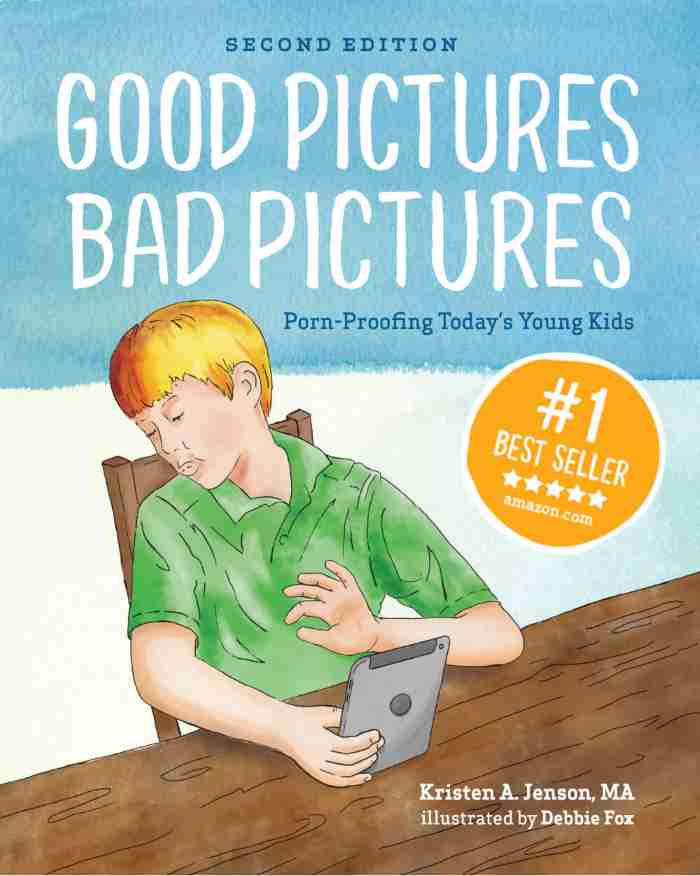
COVID-19 School Closures: Our Best Tips for Digital Safety, Emotional Wellness and Family Time
Has your school announced a closure? Are you worried? Your first question might be, “What am I going to do with these kids?!”
Already an estimated 22,000 schools have closed or are scheduled to close due to COVID-19 and yours may be next. Honestly, this is very discombobulating! Your family will be disoriented and you’ll need to find ways to normalize to this new reality..
Here are our best tips to deal with emotions, make a family plan, and increase your family’s online safety!

1. DEAL WITH EMOTIONS
Expect a day or two of feeling disoriented. Allow everyone to talk about what’s going on inside--are they happy about staying home? Afraid? Frustrated?
Don’t try to fix their feelings. Hear them, acknowledge them.
In fact, this is a great time to think about increasing emotional resilience in your kids! If you’re not already a Protect Young Minds subscriber, please sign up and start receiving our monthly 2020 Resilient Parenting Challenges! Each Challenge helps you practice a new skill with your child with the goal of a much more resilient child by the end of the year! Sign up here!
Also, check out these helpful articles:
Feelings 101: A Simple Exercise to Build Emotional Wellness in Kids
4 Ways to Help Kids Deal with Discomfort: Life Skills that Build Emotional Resilience
And to motivate you to guard your family’s mental health, check this out article: Screen Time and Mental Health: Simple Life Hacks for Raising Resilient Kids.
2. MAKE A FAMILY PLAN
This pandemic has come on so fast, that most of us are not prepared. Our minds may still be reeling.
So once you’ve dealt with your initial emotions, bring your family together and make a plan. It’s important to get your kids’ ideas--they’ll be more likely to follow your new plan if they have a say in it.
Here’s a list of things to talk about:
- PLAN Your NEW Daily and Weekly Schedule. Our brains like routines. Routines and rituals give us a sense of control and normalcy and help us be more productive. Your schedule can be down to the minute or simply assigning blocks of time to certain activities. If your kids will be home alone while you’re at work, a schedule with tasks to complete will provide them with structure and also reduce the amount of time they are on screens. Plan to revise your new schedule after you’ve lived with it for a few days or a week. Maybe you’ll decide to start the day with exercise and then let each child tackle their toughest academic subject as recommended in the book Spark. You may want to change your “start” time for studies or inject some fun ideas into your day.
- ADD in some FUN and NOVELTY! This situation is stressful and worrisome. So much of our daily expectations and routines have been upended. Now is the time to find some fun ways to make the best of it. Our brains love novelty, so try a new:
- Virtual Museum Tours: Visit famous museums from around the world from the comfort of your living room! You can find virtual tours of 12 Museums From Around the World here.
- Games: There are so many new board games you could order. Or find family card games to try here. Or find a jigsaw puzzle to assemble!
- Recipe or Food: Now might be a great time to teach your kids how to cook! Maybe a few times a week you could try making food from a different ethnicity or country. Search for “Basic Cooking” or “Beginner Cooking” on YouTube.
- Craft project: We all enjoy being creative! Check out 6 weeks of craft projects from Family Fun.
- Exercise: Family yoga, anyone? What about geocaching? Looking for edible plants during a walk? Go for a bike ride? Remember social distancing does NOT mean you have to stay inside! It will do everyone some good to get some exercise and fresh air!
- Music activity. Play Guess the Disney Song here or look for other “Can you guess” videos on YouTube.
- Way to give service. Have your kids write out ideas for performing service and put them in a jar. Pull out one each day and do it! (Write a card, weed a neighbor’s yard, etc.)
- Approach to spring cleaning! With everyone home it’s a great time to get some help with those spring cleaning and organizing projects!
[[CTA]]
3. INCREASE YOUR FAMILY’S ONLINE SAFETY.
Kids may be on screens more to do their school work. And as sporting events are canceled, they may be tempted to spend all of that time on screens--which could lead to dangerous material like pornography. One study found that searches for porn shot up 4700% once school was out.
Here’s what we recommend:
- Talk with your kids about choosing their content wisely. Make sure they know what pornography is (age-appropriate definition), WHY it’s harmful, and HOW to reject it (give them a plan). Reading Good Pictures Bad Pictures to them and using the discussion questions after each chapter helps to accomplish this important goal.
- Make sure you have parental controls and filters in place. We recommend Bark for devices that children use. Bark just linked arms with RouterLimits so you’ll get the best of filtering and monitoring software for your devices.
- Family Media Plan: This is a great time to create or review your family rules regarding electronics, where they’re allowed in the home and where they are charged up. This is also a great time to discuss what your family media values are.
Related: “Can I Play This?” Video Game Decisions Made Easy in 4 Quick Steps
For more ways on how to guide your family through screen time, check out this course by Better Screen Time!
As we do our part to slow the spread of COVID-19, our lives will definitely be disrupted. Try to have a positive attitude about the extra time you’ve been given to spend together. It’s important to give kids reassurance that “this too shall pass”. Our tips will help you make the most of a tough situation!
This post contains affiliate links. Thank you for supporting Protect Young Minds.



Good Pictures Bad Pictures
"I really like the no-shame approach the author takes. It's so much more than just 'don't watch or look at porn.' It gave my children a real understanding about the brain and its natural response to pornography, how it can affect you if you look at it, and how to be prepared when you do come across it (since, let's face it... it's gonna happen at some point)." -Amazon Review by D.O.






